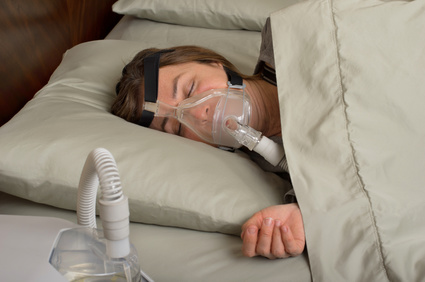📚Sleep Apnea Test at Home
 Should you be experiencing issues with your sleep, your doctor may advise conducting a sleep apnea test in the comfort of your home. This procedure supplies the doctor with the necessary data to determine the presence of sleep apnea symptoms. It is a straightforward method where you have to sleep using a device designed to gather essential data. The next day, you bring the collected data to your healthcare provider for evaluation. We will explore this process in more detail within this article. Let’s dive in, shall we?
Should you be experiencing issues with your sleep, your doctor may advise conducting a sleep apnea test in the comfort of your home. This procedure supplies the doctor with the necessary data to determine the presence of sleep apnea symptoms. It is a straightforward method where you have to sleep using a device designed to gather essential data. The next day, you bring the collected data to your healthcare provider for evaluation. We will explore this process in more detail within this article. Let’s dive in, shall we?
What is Sleep Apnea?
According to NIH institute, sleep apnea is defined as a disorder where the patient experiences pauses in breathing as they sleep. Common indicators include a sudden loud snort or a choking sound. This disorder is also very common but it becomes a problem with time and age. The patient experiences fatigue as a result of poor sleep during the night. In extreme cases, sleep apnea might result in sudden death.
There are two types of sleep apnea;
- Central Sleep Apnea – This type affects your central nervous system hence the name “central”. Your brain fails to send “breathe” signals to your muscles during sleep.
- Obstructive Sleep Apnea – This is the most common type. It bears the name “obstructive” because it usually causes the throat’s soft tissue to collapse thereby blocking your airways during sleep.
The Risk Factors of Sleep Apnea
Although sleep apnea is a common disorder, there are several factors that could put you at a higher risk. These include;
- Obesity
- A family history of this condition.
- Gastro-esophageal reflux
- Sinus problems and related allergies
In addition to the above, males aged above 40 years tend to be at a higher risk. Also, people with a genetically larger neck, larger tongue and tonsils, and smaller jaw bones experience sleep apnea more.
Symptoms of Sleep Apnea
If you have two or more of the following symptoms, then you need to see a certified sleep specialist for a diagnosis.
- Loud snoring
- Fatigue during the day despite sleeping for the recommended hours at night
- Experiencing sore throat and headaches in the morning
- Choking in the middle of your sleep
- Insomnia
- Being moody and forgetful
The specialist will most probably recommend you to have a sleep apnea study test. You can choose to spend a night at the facility for them to carry out the sleep test or carry the equipment and do a home sleep testing. The latter is better and most convenient. So what happens at home?
Home Sleep Study Procedure
A sleep apnea test, also called a polysomnogram, involves several equipment and surface electrodes. These shouldn’t scare you though because once you have the equipment strapped on, you’ll barely feel its weight. Here is a brief detail of the equipment you’ll be carrying home;
- Surface electrodes – These are put on your scalp and face to monitor muscle movement.
- A set of belts – You place them on your abdomen and chest. These measure your breathing rhythms.
- An oximeter probe – This is put on the finger. It measures your blood’s oxygen level as you sleep.
- Electromyogram (EMG) – Records your muscle activity and also determines if you experience REM sleep.
- Electroencephalogram (EEG) – Dedicated to measure your brain activity while you sleep.
- Snore microphone – Detects any snoring in your sleep.
- Electrocardiogram – To monitor your heart beat.
- Nasal airflow sensor – This equipment records your airflow. It will help detect any airway blockage.
- Electro-oculogram (EOG) – This one targets the eyes and it usually records your eye muscle movement.
That’s a whole lot of equipment, right? Below is a video on the practical use of the above equipment. When you wake up in the morning, you are required to submit the equipment back to the practitioner for a diagnosis. If the results indicate a positive result, then you need to undergo treatment to avoid further complications.
Sleep Apnea Treatment
Treatment varies with the intensity of diagnosis. If you are too deep in the condition, you might require surgery to correct it. However, if you are still in the mild stages, here are a few home remedies you could try;
- Sleeping in different sleep positions to help with better breathing. You should also avoid sleeping on your back
- Going slow on sleeping pills and alcohol
- Weight loss if you are an extreme size
- Cutting off addictive substance such as smoking and coffee
For the extreme sleep apnea stage, a CPAP therapy is administered. CPAP (Continuous Positive Airway Pressure) is an extrusive treatment that forces continuously flow of air while you sleep. It is a mask which you wear on your nose and mouth. Think of it more like an oxygen mask.
Another option is to wear a dental mask which keeps your airways open throughout. For people with genetically predisposing features such as a large tonsil as discussed above, surgery becomes the optimum option to correct these features.
Effects of Sleep Apnea
If you don’t diagnose and treat this condition in good time, you might experience the following complications;
- Heart attacks which might lead to heart failure and eventual death
- High blood pressure since your heart has to keep pumping more blood in an effort to circulate the little oxygen available (remember you’re barely breathing in enough oxygen supply while you sleep)
- Stroke once some organs start getting depleted of oxygen supply
- Depression due to inadequate sleep
- Headaches
- Diabetes
These are just the extreme effects. However, remember that you will also experience poor performance due to fatigue during the day. In fact, road accidents might occur due to driving while sleeping. Sleep apnea can be managed so don’t wait until you start experiencing these extreme effects for you to seek treatment.
The Bottom Line
Research is still ongoing to discover alternative sleep apnea treatment. However, I’m sure by now you appreciate the importance of a sleep apnea test at home. They say that prevention is better than cure. If the results turn negative, then you need to adapt a healthier lifestyle to avoid predisposing yourself. However, with positive results, the treatment options above will come in handy. Are you a victim of sleep apnea? How did you deal with it? Share your story in the comments section.





